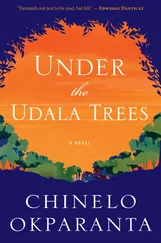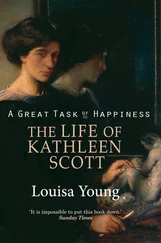‘Is something the matter?’ Mama asked.
A pause. ‘Your husband,’ the woman responded, like a question.
‘He doesn’t know,’ Mama said, answering what she assumed was the question. ‘You won’t need to tell him, will you?’
The woman shook her head. ‘He would only know what you allowed him to know,’ she said. ‘But that’s not the problem.’ Silence. ‘Your husband,’ the woman tried again. ‘He’s a student?’
Mama nodded. ‘Engineering,’ she said. ‘Boston University.’
‘He is here on a student visa?’ the counsellor asked.
Again, Mama nodded.
Then the woman was shaking her head once more, telling Mama how sorry she was. A slip of her mind, she said. It was something she should have done, but that evening by the bus stop, all she had thought was of the swollen lips, of all the bruises she’d seen on us over the past few months. It had somehow not occurred to her to ask what papers we had. It had not occurred to her that day to inquire about the status of our residency.
‘It complicates things,’ she said, still shaking her head. ‘But basically, I’m afraid there’s not much I can do given the situation.’ Surely we still had family back in Nigeria. Couldn’t we simply return home to them, and leave Papa here to finish his studies on his own? There was that look on the woman’s face as she spoke, an almost blank stare, as if she knew, as we did, that that solution was as good as no solution at all.
Mama remained silent, listening, or maybe no longer listening. Maybe trying to readjust her mind, like I was, to the idea that we would be returning to Papa.
I looked into the woman’s eyes, big and blue, which reminded me again of E.T. Of course, she would actually have been more like Elliot or Gertie or Michael. We had somehow become stranded in her country, and she’d have loved to hide us in the closet the way that they’d all hidden E.T. She’d have helped us, would have taken care of us. Only, somehow, she couldn’t.
We walked down the street, past the row houses, climbed into the tram, climbed off the tram, all in silence. It was not until we turned the corner on Buswell Street that Mama finally spoke. ‘She’s a nice lady,’ she said.
I nodded.
‘She tried,’ Mama said.
I nodded.
‘Maybe things will get better with your papa,’ she said.
‘Maybe,’ I said. We climbed down the stairs leading to the courtyard of our building, and I imagined E.T., sick and weak, lying helpless on the bathroom floor. That was partly the way the movie would have ended that evening long ago, if I had watched it to the end. Government agents invading the house. Then E.T. on that hospital-looking bed, all those masked scientists, dressed in white, trying to nurse him back to health. The children on their bicycles flying into the sunset, then landing back on the ground. The children staring expectantly at the greying sky, watching and waiting for E.T’s people to land and carry him back home.
The first time I see her, she is crouched by the entrance of the third-floor bathroom, at an equal distance between my office and the lecture hall where I teach. She is sobbing, and her shoulders are shaking slightly, so I stop, crouch down to be closer to her level, pat her on the shoulder and ask her if she’s all right. She nods and mumbles something under her breath. Then she lifts her head, wipes away tears with her hands and smiles at me, a weak smile. ‘I’m okay,’ she says. Her voice is faint and comes out like a croak. There is a pause, and then another croak. I’m not sure what she says that second time around, but the sound makes me think of frogs, small and slimy, of Exodus and the second plague, of the inundation of the Nile, of Pharaoh and his magicians challenging God by creating more frogs. I think of all this because that’s what’s on my mind these days. That’s what I teach that semester. The Old Testament.
I straighten up and look in the direction of my office. There is a yellow cart in the centre of the hallway, and not too far from the cart, a janitor is pushing a tall broom across the floor. There is a clock hanging from the ceiling on the far end of the hallway. I look at it and then I look back down at her. ‘It’s about 5 p.m.,’ I say. ‘They’ll be locking up the building very soon.’
She nods and lifts herself up from the floor. She is clutching a handbag to her chest, grasping it as if it is some kind of life support, and then all of a sudden she starts to bawl so hard that she seems to be gasping for air. I start again to pat her on the shoulder, and somehow I find myself leading her back to my office, pulling out a seat for her, one of the two seats in the room that are reserved for my students. Except I’m not even sure that she’s a student of mine. And in my twenty years at the university, I’ve never seen any of them weep like this before.
‘I’m sorry,’ I say to her, because I truly am sorry to see her crying so hard. She leans forward on the chair, still clasping her bag, rocking it and herself back and forth. Slowly her sobbing declines until I can only hear the occasional catch of her breath. She rises from her seat and heads for the door.
‘If you ever need someone to talk to—’ I say. I don’t finish.
At the doorway, she turns to look at me. ‘Thanks,’ she says, and as she says it, I allow my eyes to linger on her. I look at her braids — thin, black braids that extend down past her shoulders. I observe the tone of her skin — a dark olive complexion, unique in its hue. Her lips are swollen and reddish, and there are streaks of tears staining her cheeks. I wonder where exactly she is from. As she walks out the door, I find myself thinking what a shame it is that anybody should be made to cry that much.
A few days go by — Thursday, Friday and the weekend. I’ve almost forgotten the crying incident by Monday when I step into the lecture hall for my Old Testament class. The class itself is a different demographic than other graduate courses I’ve taught, say, Chaucer, or Milton, or even my Greek Mythology class. These students are more zealous than any I’ve had before. I figure that maybe it’s the Bible’s effect on things. Or maybe it’s a consequence of age, because from the look of things, most of these students are in their thirties and forties, older than my typical set of students. And, unlike former students, these ones are quite fond of scheduling meetings with me. They do it with such alarming frequency that at certain points in the semester, I go back and forth about whether to put a cap on the number of visits allowed per student. Not because I don’t want to meet with them, but because after a while, I get tired of hearing the same questions over and over again, questions like why the books of the Old Testament are organized the way they are, or why it is that in Leviticus God bans cripples from approaching his altar. Often enough, my answer is that it’s a good question, but that there are several possibilities, all of which are subject to debate.
In any case, I step into the lecture hall, and a group of my students walks in the door with me, making small talk about God and the weather. I nod and smile at the things they say, and after we enter, I head directly to the front of the room, the way I always do. I jot down some Bible verses on the board, write some notes about apodictic law versus casuistic law, about Hammurabi’s Code versus the Ten Commandments, about goodness for goodness’ sake versus goodness with an eye to some type of reward or punishment. I wipe the chalk off my hands and turn around to face the class, and I catch a glimpse of her, the girl with the long black braids, sitting in the corner at the very back of the room. I smile. She looks down. I figure she’s still a bit embarrassed about the crying, so I go on with the lecture, and I try not to look her way again.
Читать дальше












